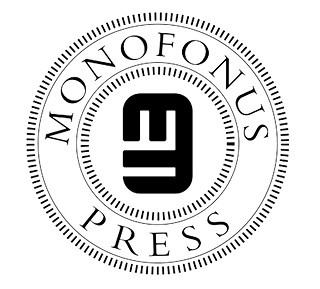Who's Afraid of Gertrude Stein?
Not your Tender Buttons-loving friends at Monofonus Press, to be sure.
By Wayne Alan Brenner and Matt Bucher, 3:25PM, Wed. Apr. 23, 2014
OK, everybody can quote "Rose is a rose is a rose is a rose" from Gertrude Stein's "Sacred Emily," and that's about it.
Well, except for those who've delved more deeply into the works of that famed author and art collector and salon fomenter.
One of those deeper delvers is a man named Daniel Carter. And this Daniel Carter has created a tiny little chapbook to help a reader puzzle out Stein's novelesque Tender Buttons. Because? Well, because 1) he can, and 2) it's a celebration of the upcoming City Lights "corrected, centennial" edition of that very book. And also because 3) Austin's own Monofonus Press was glad to produce this companion-piece of Carter's in a tidily elegant zinelike edition.
And that's what we're going to tell you about here, before the mini-publication's release party at Malvern Books on Thursday night.
But the "we" who's going to tell you is not the "we" that's named Brenner. Because we figured it would be better to consult a person who's much more familiar with Stein's work, with the oeuvre in which Tender Buttons is so intricately embedded. And so we called upon one of Austin's more affable literati: The redoubtable Matt Bucher, the man who, among so many other endeavors, runs the David Foster Wallace listserv; the man who recently participated in our discussion of Doug Dorst & J.J. Abrams' remarkable S..
We turned the review copy of Carter's chapbook over to that erudite Bucher, and this is his well-considered response:
"One hundred years ago, six years before women earned the right to vote in this country, Gertrude Stein published an absurdist “book” of prose-like “poems” about everyday objects called Tender Buttons. It remains a revolutionary text. Buttons aren’t tender – and from a logical construction such as this, one can infer much of the poetry in the book. Buttons aren’t tender, salads aren’t graceful, suppose it is sam, watercress is capable of glee, nervous bed rows is not a term of affection. It’s Mad Libs for strange adults. After all, how would you waylay a vegetable? It sounds better than chopping it. Stein also takes the comfortable, familiar syntax and punctuation of an English sentence, of a standard paragraph, and chops it up: “Out of kindness comes redness and out of rudeness comes rapid same question, out of an eye comes research, out of selection comes painful cattle.” It begs to be read aloud.
"Monofonus Press now bestows upon us a companion booklet/zine for Stein’s book. This Tender Buttons by Daniel Carter is designed to be drawn upon, written upon, stamped, chopped, scratched, and examined with a razor-sharp pen. Inviting graph paper provides helpful space for writing prompts, drawings, and answers to questions printed upside down – in fact, the booklet should probably be read upside down first. There is also a digital companion site that replicates some of Carter’s experiments and gives the reader a lagniappe of what’s in the booklet. Try not to draw on the screen.
"Carter’s booklet is roughly the size of the Field Notes or Moleskine you probably already carry around in your pocket or purse, but this book isn't one for grocery lists or jotting down your own thoughts – it’s a kaleidoscope for looking through your groceries, for considering the oyster; it’s Sprockets-meets-Cards Against Humanity. It’s a wrought-iron gateway into the language and poetry of one of the most original thinkers to ever tackle the kitchen, the room, and the objects. Just as lobster demands a layer of emulsified butter or beurre blanc, dense and confounding texts like Stein’s are often better with a layer of explication or analysis or graph paper added on top. The intent is typically not geared toward understanding Tender Buttons so much as it is savoring it.
"At one point, Stein writes “Pheasant and chicken, chicken is a peculiar third.” Our booklet gives us three stacked drawings sans text and so one must examine that third chicken to see if it is peculiar because it is third, because it is not peculiar at all, or if maybe our perception of chickens groups them in such a way as to be indistinguishable from pheasants, from each other, or from “other.” It can get very confusing very quickly.
"Obviously, Gertrude Stein was an insane genius whose writing still wrings sweat out of our gray matter. Daniel Carter, though his name does not appear in this “puzzle book”, is an inventive co-creator and teacher of Stein’s “mind grammar.” Lovers of bizarre syntax, magnetic poetry, and marginalia: Rejoice! your tender buttons await."
A note to readers: Bold and uncensored, The Austin Chronicle has been Austin’s independent news source for over 40 years, expressing the community’s political and environmental concerns and supporting its active cultural scene. Now more than ever, we need your support to continue supplying Austin with independent, free press. If real news is important to you, please consider making a donation of $5, $10 or whatever you can afford, to help keep our journalism on stands.
March 22, 2024
March 22, 2024
Gertrude Stein, Tender Buttons, Monofonus Press, Daniel Carter, City Lights









